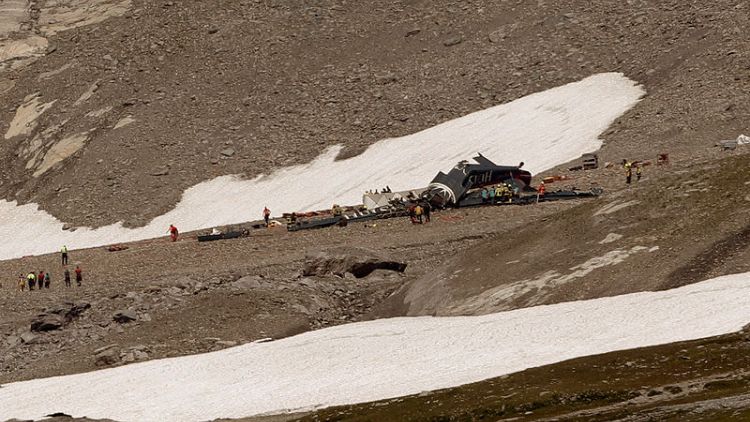ZURICH (Reuters) - Switzerland is withdrawing a tourist airline's commercial licence to carry paying passengers in its vintage planes after a crash in the Swiss Alps last year killed 20 people, the country's government said on Tuesday.
Seventeen Swiss and three Austrians were aboard a trimotor Junker JU-52 aircraft, built in the 1930s as a military aircraft and later used by a Swiss tour operator for scenic flights, when it crashed on Aug. 5.
"Following the accident in the summer of 2018, Federal Office for Civil Aviation (BAZL) re-evaluated the risks of passenger flights with classic planes and came to the conclusion that commercial operation with historic aircraft no longer meets today's safety requirements," the Swiss government said.
The agency said results from an ongoing investigation of the Ju-52's crash last year supported its decision, adding that European laws governing historic planes are due to be changed in mid-2019 to forbid commercial operations.
Private flights by members of the Duebendorf, Switzerland-based Ju-Air, the 37-year-old organisation which owns the planes, could eventually be allowed under the rules, BAZL said.
For now, however, Ju-Air's three Ju-52 aircraft will remain indefinitely grounded until the group carries out technical measures required by the Swiss civil aviation agency to ensure airworthiness.
Ju-Air officials, based at a former Swiss military airfield near Zurich, declined to comment. A press release will be issued later on Tuesday, a spokeswoman said.
Ju-Air's remaining planes have been banned from flying since November, when the Swiss Transportation Safety Investigation Board (STSIB) found signs of corrosion on the plane that had crashed, among other shortcomings.
The issues were not the accident's cause, the safety board said at the time, adding that no technical reason has been determined in its ongoing probe that led to the plane slamming into the ground in the mountain canton of Grisons.
(Reporting by John Miller, editing by Ed Osmond)
